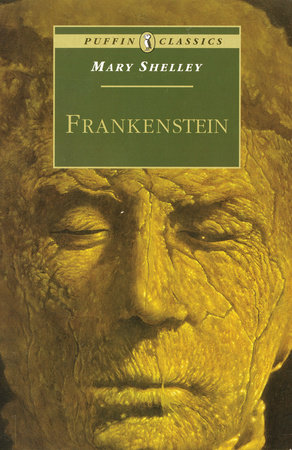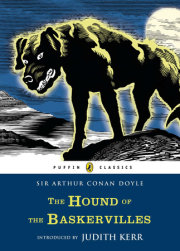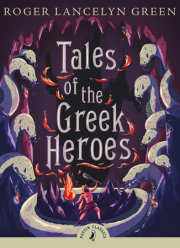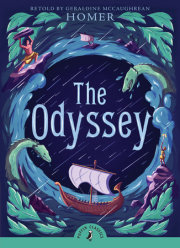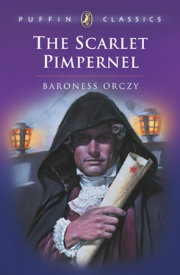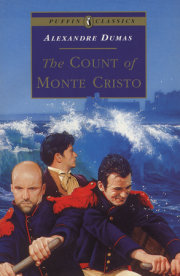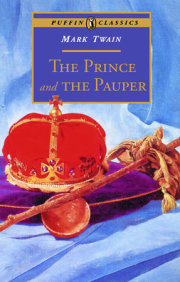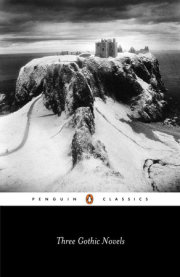LETTER IV
To Mrs Saville, England.
August 5th, 17–.
So strange an accident has happened to us that I cannot forbear recording it, although it is very probable that you will see me before these papers can come into your possession.
Last Monday ( July 31st) we were nearly surrounded by ice, which closed in the ship on all sides, scarcely leaving her the searoom in which she floated. Our situation was somewhat dangerous, especially as we were compassed round by a very thick fog. We accordingly lay to, hoping that some change would take place in the atmosphere and weather.
About two o’clock the mist cleared away, and we beheld, stretched out in every direction, vast and irregular plains of ice, which seemed to have no end. Some of my comrades groaned, and my own mind began to grow watchful with anxious thoughts, when a strange sight suddenly attracted our attention, and diverted our solicitude from our own situations. We perceived a low carriage, fixed on a sledge and drawn by dogs, pass on towards the north, at the distance of half a mile; a being which had the shape of a man, but apparently of gigantic stature, sat in the sledge, and guided the dogs. We watched the rapid progress of the traveller with our telescopes until he was lost among the distant inequalities of the ice.
This appearance excited our unqualified wonder. We were, as we believed, many hundred miles from any land; but this apparition seemed to denote that it was not, in reality, so distant as we had supposed. Shut in, however, by ice, it was impossible to follow his track, which we had observed with the greatest attention.
About two hours after this occurrence we heard the ground sea; and before night the ice broke, and freed our ship. We, however, lay to until the morning, fearing to encounter in the dark those large loose masses which float about after the breaking up of the ice. I profited of this time to rest for a few hours.
In the morning, however, as soon as it was light, I went upon deck and found all the sailors busy on one side of the vessel, apparently talking to some one in the sea. It was, in fact, a sledge, like that we had seen before, which had drifted towards us in the night on a large fragment of ice. Only one dog remained alive; but there was a human being within it, whom the sailors were persuading to enter the vessel. He was not as the other traveller seemed to be, a savage inhabitant of some undiscovered island, but an European. When I appeared on deck, the master said, ‘Here is our captain, and he will not allow you to perish on the open sea.’
On perceiving me, the stranger addressed me in En-glish, although with a foreign accent. ‘Before I come on board your vessel,’ said he, ‘will you have the kindness to inform me whither you are bound?’
You may conceive my astonishment on hearing such a question addressed to me from a man on the brink of destruction and to whom I should have supposed that my vessel would have been a resource which he would not have exchanged for the most precious wealth the earth can afford. I replied, however, that we were on a voyage of discovery towards the northern pole.
Upon hearing this he appeared satisfied, and consented to come on board. Good God! Margaret, if you had seen the man who thus capitulated for his safety, your surprise would have been boundless. His limbs were nearly frozen, and his body dreadfully emaciated by fatigue and suffering. I never saw a man in so wretched a condition. We attempted to carry him into the cabin; but as soon as he had quitted the fresh air, he fainted. We accordingly brought him back to the deck, and restored him to animation by rubbing him with brandy and forcing him to swallow a small quantity. As soon as he showed signs of life, we wrapped him up in blankets and placed him near the chimney of the kitchen stove. By slow degrees he recovered, and ate a little soup which restored him wonderfully.
Two days passed in this manner before he was able to speak; and I often feared that his sufferings had deprived him of understanding. When he had in some measure recovered, I removed him to my own cabin, and attended on him as much as my duty would permit. I never saw a more interesting creature; his eyes have generally an expression of wildness, and even madness, but there are moments when, if any one performs an act of kindness towards him or does him any the most trifling service, his whole countenance is lighted up, as it were, with a beam of benevolence and sweetness that I never saw equalled. But he is generally melancholy and despairing; and sometimes he gnashes his teeth; as if impatient of the weight of woes that oppresses him.
When my guest was a little recovered, I had great trouble to keep off the men, who wished to ask him a thousand questions; but I would not allow him to be tormented by their idle curiosity, in a state of body and mind whose restoration evidently depended upon entire repose. Once, however, the lieutenant asked why he had come so far upon the ice in so strange a vehicle?
His countenance instantly assumed an aspect of the deepest gloom; and he replied, ‘To seek one who fled from me.’
‘And did the man whom you pursued travel in the same fashion?’
‘Yes.’
‘Then I fancy we have seen him, for the day before we picked you up, we saw some dogs drawing a sledge, with a man in it, across the ice.’
This aroused the stranger’s attention, and he asked a multitude of questions concerning the route which the daemon, as he called him, had pursued. Soon after, when he was alone with me, he said, ‘I have, doubtless, excited your curiosity, as well as that of these good people; but you are too considerate to make enquiries.’
‘Certainly; it would indeed be very impertinent and inhuman in me to trouble you with any inquisitiveness of mine.’
‘And yet you rescued me from a strange and perilous situation: you have benevolently restored me to life.’
Soon after this he enquired if I thought that the breaking up of the ice had destroyed the other sledge? I replied, that I could not answer with any degree of certainty, for the ice had not broken until near midnight, and the traveller might have arrived at a place of safety before that time; but of this I could not judge.
From this time a new spirit of life animated the decaying frame of the stranger. He manifested the greatest eagerness to be upon deck, to watch for the sledge which had before appeared; but I have persuaded him to remain in the cabin, for he is far too weak to sustain the rawness of the atmosphere. I have promised that some one should watch for him and give him instant notice if any new object should appear in sight.
Such is my journal of what relates to this strange occurrence up to the present day. The stranger has gradually improved in health, but is very silent, and appears uneasy when anyone except myself enters the cabin. Yet his manners are so conciliating and gentle, that the sailors are all interested in him, although they have had very little communication with him. For my own part, I begin to love him as a brother; and his constant and deep grief fills me with sympathy and compassion. He must have been a noble creature in his better days, being even now in wreck so attractive and amiable.
I said in one of my letters, my dear Margaret, that I should find no friend on the wide ocean; yet I have found a man who, before his spirit had been broken by misery, I should have been happy to have possessed as the brother of my heart.
I shall continue my journal concerning the stranger at intervals, should I have any fresh incidents to record.
August 13th, 17–.
My affection for my guest increases every day. He excites at once my admiration and my pity to an astonishing degree. How can I see so noble a creature destroyed bymisery, without feeling the most poignant grief? He is so gentle, yet so wise; his mind is so cultivated, and when he speaks, although his words are culled with the choicest art, yet they flow with rapidity and unparalleled eloquence.
He is now much recovered from his illness, and is continually on the deck, apparently watching for the sledge that preceded his own. Yet, although unhappy, he is not so utterly occupied by his own misery but that he interests himself deeply in the projects of others. He has frequently conversed with me on mine, which I have communicated to him without disguise. He entered attentively into all my arguments in favour of my eventual success, and into every minute detail of the measures I had taken to secure it. I was easily led by the sympathy which he evinced, to use the language of my heart, to give utterance to the burning ardour of my soul; and to say, with all the fevour that warmed me, how gladly I would sacrifice my fortune, my existence, my every hope, to the furtherance of my enterprise. One man’s life or death were but a small price to pay for the acquirement of the knowledge which I sought for the dominion I should acquire and transmit over the elemental foes of our race. As I spoke, a dark gloom spread over my listener’s countenance. At first I perceived that he tried to suppress his emotion; he placed his hands before his eyes, and my voice quivered and failed me as I beheld tears trickle fast from between his fingers—a groan burst from his heaving breast. I paused; at length he spoke, in broken accents—‘Unhappy man! Do you share my madness? Have you drunk also of the intoxicating draught? Hear me—let me reveal my tale, and you will dash the cup from your lips!’
Such words, you may imagine, strongly excited my curiosity; but the paroxysm of grief that had seized the stranger overcame his weakened powers, and many hours of repose and tranquil conversation were necessary to restore his composure.
Having conquered the violence of his feelings, he appeared to despise himself for being the slave of passion; and quelling the dark tyranny of despair, he led me again to converse concerning myself personally. He asked me the history of my earlier years. The tale was quickly told: but it awakened various trains of reflection. I spoke of my desire of finding a friend—of my thirst for a more intimate sympathy with a fellow mind than had ever fallen to my lot; and expressed my conviction that a man could boast of little happiness, who did not enjoy this blessing.
‘I agree with you,’ replied the stranger; ‘we are unfashioned creatures, but half made up, if one wiser, better, dearer than ourselves—such a friend ought to be—do not lend his aid to perfectionate our weak and faulty natures. I once had a friend, the most noble of human creatures, and am entitled, therefore, to judge respecting friendship. You have hope, and the world before you, and have no cause for despair. But I—I have lost every thing and cannot begin life anew.’
As he said this his countenance became expressive of a calm, settled grief, that touched me to the heart. But he was silent, and presently retired to his cabin.
Even broken in spirit as he is, no one can feel more deeply than he does the beauties of nature. The starry sky, the sea, and every sight afforded by these wonderful regions, seems still to have the power of elevating his soul from earth. Such a man has a double existence: he may suffer misery and be overwhelmed by disappointments, yet, when he has retired into himself, he will be like a celestial spirit, that has a halo around him, within whose circle no grief or folly ventures.
Copyright © 2020 by Mary Shelley. All rights reserved. No part of this excerpt may be reproduced or reprinted without permission in writing from the publisher.




